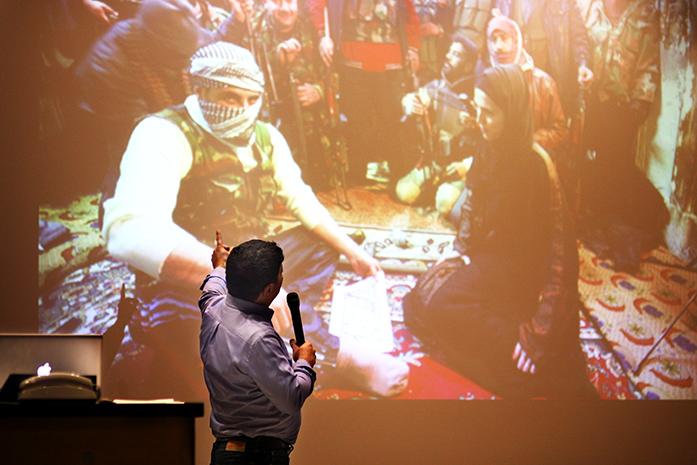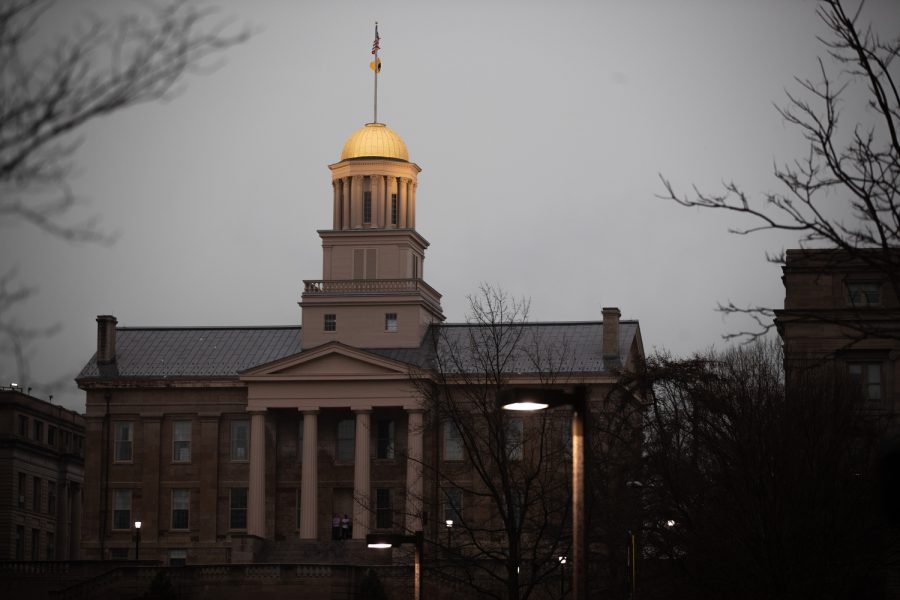By Ben Poss
[email protected]
Ben Plesser’s journalistic tactics are straight out of a movie. He has smuggled into Syrica with the help of activists on a dingy made out of tin cans. He shot video video in a gunfight and snuck aroung government checkpoints.
Plesser, a senior producer at NBC news, delivered a lecture titled “Covering ISIS: A Journalist’s Challenge” in Shambaugh Auditorium on Tuesday night. Plesser has also worked for the New York Times, “60 Minutes,” and CBS.
While some attending the lecture expected something more superficial about covering ISIS in the Middle East, what they got was much different.
“I wasn’t expecting the journalist aspect of it, I was expecting an emphasis more on ISIS in a historical context,” said Brian Miner, a University of Iowa sophomore who attended the lecture. “It really excited me.”
Plesser talked about the close calls he has experienced covering dangerous situations during his entire career.
His many tales, from staying in a house with rocket-propelled grenades hidden under the floor to confronting a jihadi militant leader on ideology, brought a behind-the-scenes look to the life of a journalist covering conflict.
“What I didn’t expect is that there would be so much emotion behind it,” said Carter Bell, the head of the University Lecture Committee. “It definitely wasn’t just an academic talk. It wasn’t like ‘here’s the state of foreign journalism right now.’ There was policy and information, but very much a human side to it as well.”
Plesser touched on some of the dangers associated with his line of work, including talking about some of his friends who have died reporting in conflict zones.
“I generally live in a dirty hotel room, or in a tent, or in a bunker,” Plesser said.
Although he has been within mere feet of getting struck by bullets, he said the most dangerous location he has reported from is the Mount Everest base camp.
He also emphasized the importance of working in a team to try to stay as safe as possible.
“The product is a product of cooperation. The decisions that we make are the decisions that we make; I wouldn’t recommend them to anyone,” he said.
Plesser also talked about political candidates’ statements concerning ISIS, foreign-policy solutions, his relationship with his girlfriend, and how journalism has changed in the face of terrorist organizations now producing their own media propaganda.
The lecture was one of many that are offered by the Lecture Committee throughout the year.
“I was really happy that he could come and that there was a really good turnout,” Bell said. “It’s nice there’s a lot of interest from students, like journalism students, who we don’t always bring into our lectures.”







